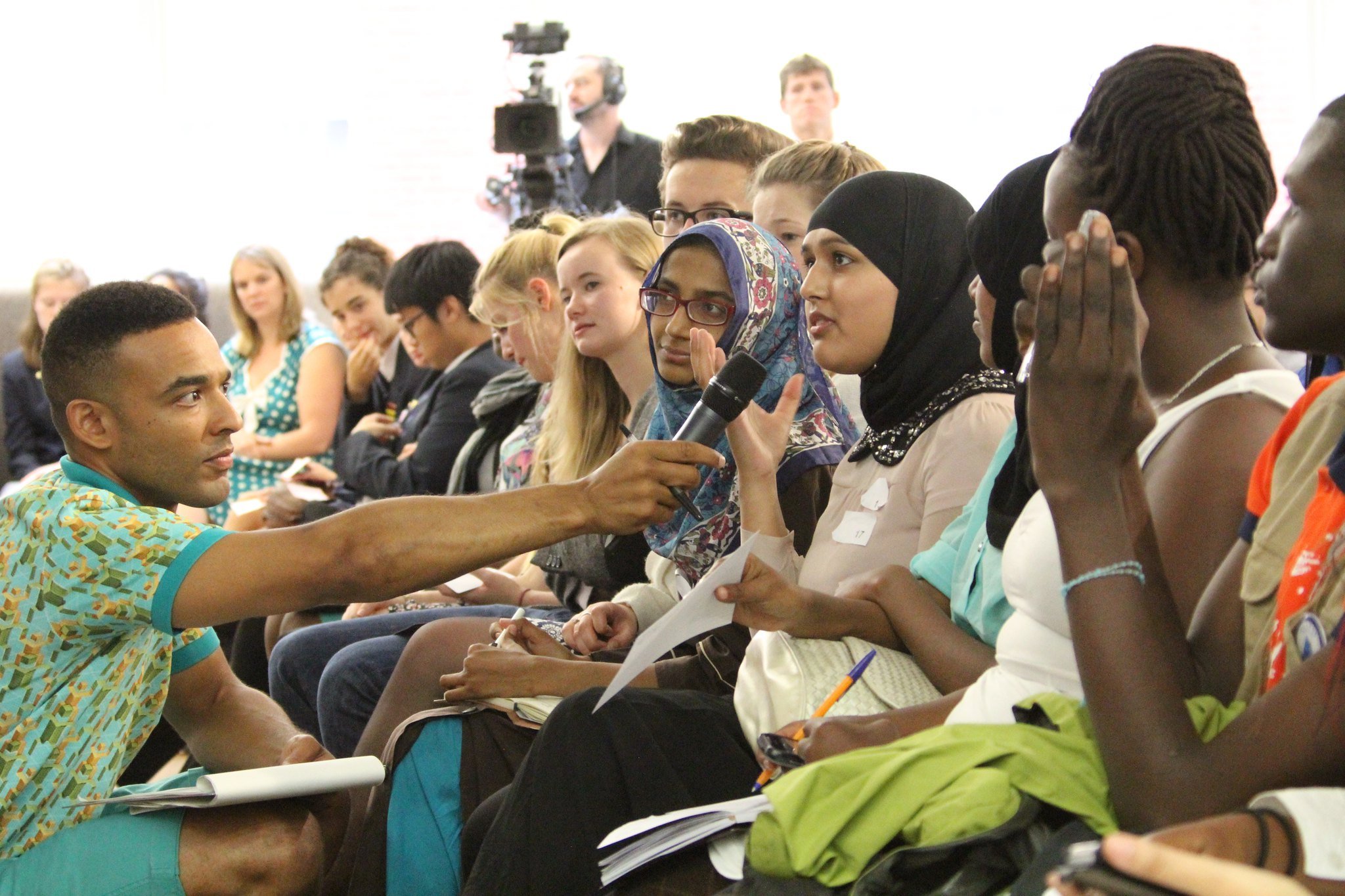lessons from faith traditions
Beyond Disillusionment: Redefining Leadership in Today’s World
by Amar D. Peterman
There is a growing skepticism among young people toward the category of “leader.” This is evident in both a defensive and protective posture towards those who identify as leaders and a hesitancy to identify oneself as such.
There are many high-level reasons we could offer to describe this skepticism, ranging from theories of formation to outdated methods of organizing and movement building. But on the ground we can boil this down to a simple reality: too often, those who are deemed “leaders'' are the very people who perpetuate the corruption, abuse, and systemic disenfranchisement we witness in the world today.
Given that I spend much of my time leading, organizing, and consulting with programs and non-profits that aim to gather and equip emerging leaders, this development in how young people view leadership has raised many questions about how we might understand adaptive leadership in our world today.
If young people don’t want to be associated as “leaders,” what language are they using to describe those who affect change? From my interactions, there doesn’t seem to be census around what language they think is best. Should organizations engaging Gen-Z drop the language of “leader” from their programming? Is the language of “leadership” redeemable from its negative connotation and associations?
Faith communities, I believe, are an opportune place to begin to answer these questions.
At their best, communities of faith and spirituality promote the values, principles, and formation needed to achieve love, justice, kindness, and hospitality in our world today. Such spaces offer a holistic ecosystem of change—providing roots that ground our efforts toward a common good and equitable support structures that focus our attention on the good work being done, rather than an individual leader.
Photo: Unsplash
Moreover, these communities bring together longstanding values and belief systems with the complex experiences of individual believers. In doing so, a holistic and constructive imagination of one’s place in the world is formed. Faith communities have the incredible formative power to help one make sense of their place in the world without making them the center of the world.
However, as young people are observing and experiencing, faith communities are not exempt from corruption and abuse. The abuse of power perpetuated by spiritual leaders is worthy of our greatest grief and lamentation. As we see in the world today, the beliefs of any faith tradition can be manipulated to self-serving ends.
The rise of Christian nationalism in the United States and Hindu nationalism in India are both examples of how communities can co-opt the teachings and values of spiritual tradition and use them to establish authoritarian power, control, and dominance over other communities. The consequences of this pattern are vast, and young people bearing witness
What solution, if any, is there for the disillusionment about one’s purpose in the world?
Drawing from my Christian faith, what first comes to mind is the leadership exemplified by Jesus. which is marked by radical, self-giving service. Rather than bringing attention and praise to himself, Jesus’ ministry is marked by radical, self-giving service. For example, a key theme repeated throughout the New Testament Gospels is Jesus’ instruction not to tell others about the miracles he had performed until the right time had come. Even more, Jesus also does not find his place among the political and religious elite but rather communes with those whom society cast out as impure and unholy. He even goes so far as to place his own body between powerful people who threatened violence against the outcast (John 8:1-11). As the New Testament gospels record, Jesus “did not come to be served, but to serve.”
Jesus’ example of service-oriented leadership is taken up by his followers who instructed the early churches to welcome the foreigner and the stranger, care for the orphan and the widow, and show no partiality to the wealthy and powerful. The early community of Christians was a disparate collection of people across social location, class, gender, culture, and age who were all compelled by the teachings and ministry of Jesus. While leaders rose to oversee and instruct the first Christian communities, this early movement was defined primarily by humility, generosity, and a fierce devotion to God in the face of imperial opposition.
To be sure, practicing this kind of leadership is not limited to the Christian tradition. We can find similar instruction rooted deeply in the history of many faith traditions, and also modern examples of service-oriented leadership across local communities. This looks like the Iman who stays after Jummah to comfort someone who has lost a relative. It is the uncles and aunties at the Gurdwara who prepare langar for their community. It is the Rabbi who spends their Sabbath praying for healing in their community.
In total, adaptive leadership in our cultural moment must begin with reimagining who a leader is and what a leader does. A leader is not the one with the largest social media following or the person with the loudest voice. A leader receives only to give away, who offers a vision of a better future, and then reaches for that vision by creating a community mutually pursuing goodness in the world. A leader is the one who, when invited to be the face of a movement, instead elevates the voices of others who might otherwise never be recognized or acknowledged. A leader does not come to be served by others, but to serve with their whole heart. This is the kind of leadership today’s youth are calling for and we should heed their charge.
Header Photo: Pixabay





